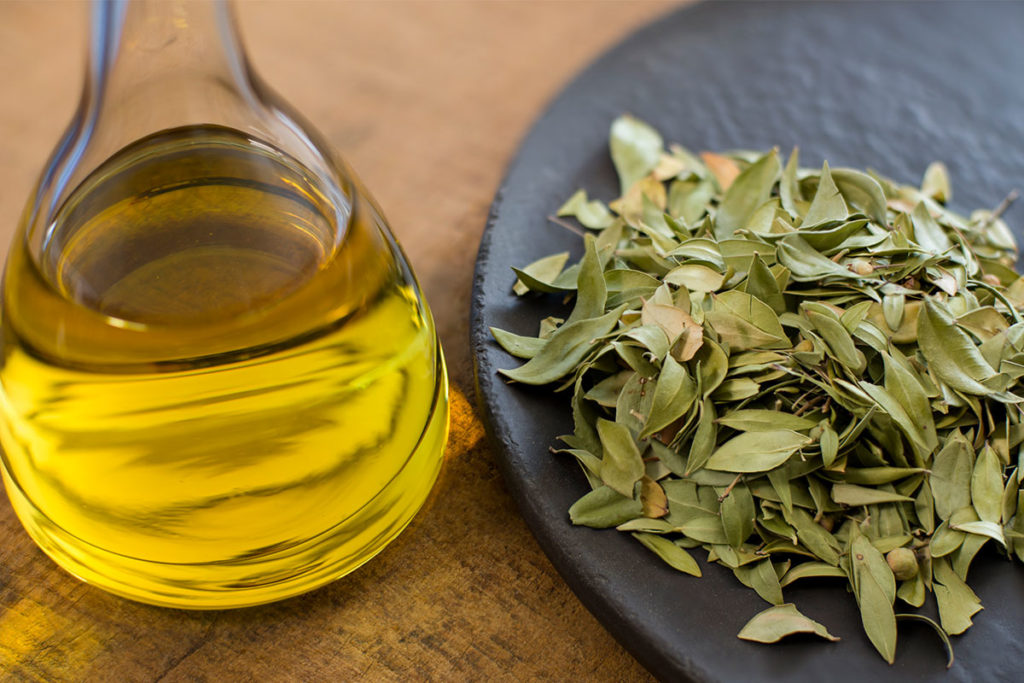Myrtle Leaf Essential Oil
Myrtle Leaf Essential Oil: Turkey’s Emerging Contribution to Global Production
Myrtle leaf essential oil has gained increasing recognition in recent years as a versatile aromatic product used across a wide range of industries. Traditionally valued for its strong, clean aroma and earthy green characteristics, myrtle oil is derived from the leaves of the myrtle plant, a shrub known for thriving in warm, coastal environments. While several countries have cultivated myrtle for generations, Turkey has steadily grown into a significant contributor to the global market. With its ideal Mediterranean climate, cultural familiarity with the plant, and sustainable harvesting methods, Turkey is emerging as a key player in the cultivation and production of myrtle leaf essential oil.
The southwestern and southern regions of Turkey, especially areas bordering the Aegean and Mediterranean Seas, provide optimal conditions for myrtle growth. These regions are characterized by mild winters, long dry summers, and a topography rich in hills and semi-forested areas — the perfect habitat for wild and cultivated myrtle. This natural abundance supports not only the growth of the plant itself but also a thriving industry centered around its leaves, which are harvested for distillation.
Unlike mass-scale farming systems seen in some industries, much of the myrtle oil production in Turkey is rooted in traditional and small-scale agricultural practices. Rural communities in provinces such as Muğla, Antalya, and Mersin often carry out the harvesting manually, using techniques passed down through generations. These practices emphasize sustainability, with harvesters carefully collecting leaves in a way that allows the plant to continue growing and regenerating naturally. Such ecological awareness contributes to the long-term viability of both the plant and the people who rely on it.
The production process typically involves steam distillation of freshly harvested leaves, a method that has become common throughout the essential oil industry. In Turkey, however, this process is often done close to the source, reducing the time between harvesting and distillation. This proximity helps preserve the aromatic integrity of the oil and supports local micro-economies. Mobile distillation units have even begun appearing in certain regions, enabling small-scale farmers to process oil without transporting raw materials long distances.
One of the major drivers of growth in Turkish myrtle oil production is the increasing global demand for plant-based and eco-conscious products. Myrtle leaf essential oil is used across industries ranging from natural cleaning solutions to personal care, and as global preferences shift toward more natural formulations, producers in Turkey are finding new opportunities for export. Turkish exporters are also benefiting from the country’s advantageous trade routes and customs partnerships, which make it easier to distribute products to Europe, the Middle East, and Asia.
In addition to its economic significance, myrtle holds cultural value in Turkey. It has long been part of traditional life in coastal villages and has been used in seasonal rituals, culinary preparations, and homegrown craft industries. In recent years, this cultural relevance has taken on new meaning, as interest in local, authentic products grows. Turkish artisans and cooperatives are now incorporating myrtle leaf oil into a variety of handmade goods, showcasing both craftsmanship and a connection to the natural environment.
The environmental impact of myrtle cultivation in Turkey is also noteworthy. Because myrtle is native to many of the regions where it is harvested, it integrates well with the local ecology and requires relatively low intervention to thrive. Its drought resistance makes it a valuable crop in areas affected by water scarcity, and its deep root system can help stabilize soil in erosion-prone landscapes. These qualities align with broader environmental goals and present myrtle cultivation as a sustainable agricultural option in the face of climate challenges.
The economic ripple effect of this essential oil extends beyond just growers and distillers. As interest grows, opportunities expand in areas such as eco-tourism, packaging, logistics, and export services. Myrtle-themed festivals, workshops, and farm tours have begun to attract visitors who want to learn more about the plant’s role in Turkish rural life. These activities foster both cultural appreciation and economic stimulation, particularly in underdeveloped rural zones.
Looking forward, Turkey’s position in the global myrtle leaf essential oil market appears promising. With rising investment in sustainable agriculture and the increasing visibility of Turkish oils in international markets, there is potential for further growth. The combination of traditional expertise, favorable environmental conditions, and modern business infrastructure places Turkey at the forefront of natural oil production without compromising on authenticity or environmental responsibility.
In conclusion, myrtle leaf essential oil represents more than just a fragrant product — it reflects a wider agricultural tradition deeply rooted in the Turkish landscape. As interest in natural and responsibly sourced materials increases worldwide, Turkey’s role in cultivating and producing myrtle oil offers a compelling example of how regional industries can contribute to global demand while preserving cultural and environmental integrity.
Product Information
Crop: Wild grown on mountains
Parts used: Leaves
Extraction method: Steam distillation
Quality: Organic Certified 100 % pure and natural essential oil
Industry used: Dietary/Nutritional Supplement, Phytotherapy, Aromatherapy, Cosmetic, Perfume, Feed and Agricultural industries.
Packaging: Food grade barrels in various sizes or Glass bottles with orifice reducer caps
Country of origin: TÜRKİYE



